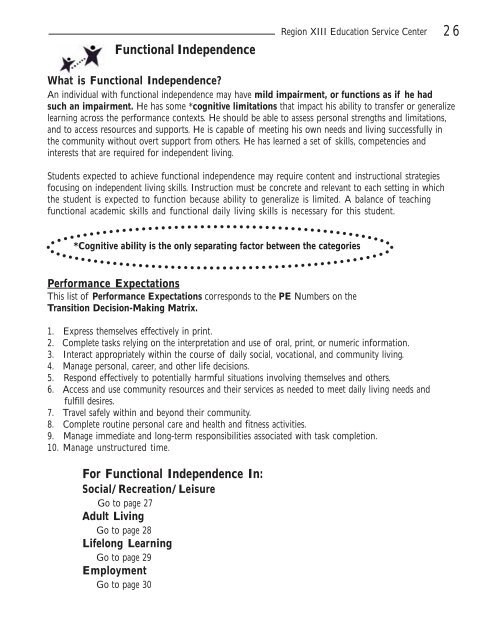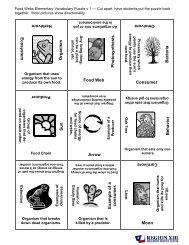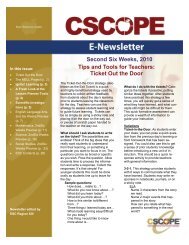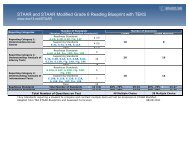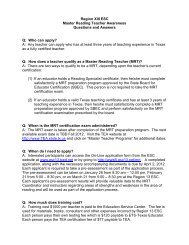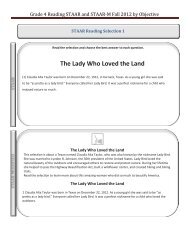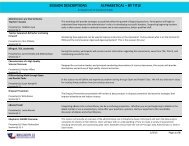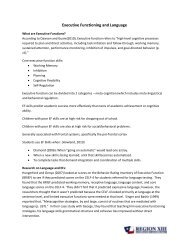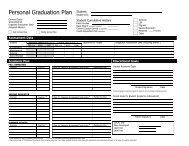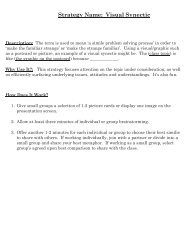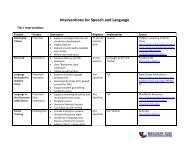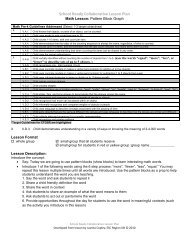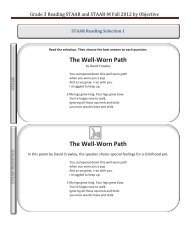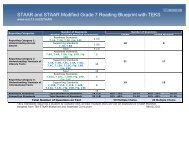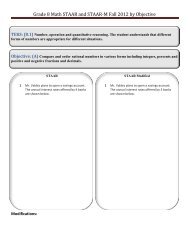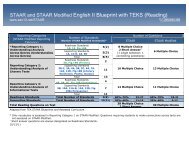Transition Inventory Manual - Region 13
Transition Inventory Manual - Region 13
Transition Inventory Manual - Region 13
Create successful ePaper yourself
Turn your PDF publications into a flip-book with our unique Google optimized e-Paper software.
Functional Independence<br />
<strong>Region</strong> XIII Education Service Center<br />
26<br />
What is Functional Independence?<br />
An individual with functional independence may have mild impairment, or functions as if he had<br />
such an impairment. He has some *cognitive limitations that impact his ability to transfer or generalize<br />
learning across the performance contexts. He should be able to assess personal strengths and limitations,<br />
and to access resources and supports. He is capable of meeting his own needs and living successfully in<br />
the community without overt support from others. He has learned a set of skills, competencies and<br />
interests that are required for independent living.<br />
Students expected to achieve functional independence may require content and instructional strategies<br />
focusing on independent living skills. Instruction must be concrete and relevant to each setting in which<br />
the student is expected to function because ability to generalize is limited. A balance of teaching<br />
functional academic skills and functional daily living skills is necessary for this student.<br />
*Cognitive ability is the only separating factor between the categories<br />
Performance Expectations<br />
This list of Performance Expectations corresponds to the PE Numbers on the<br />
<strong>Transition</strong> Decision-Making Matrix.<br />
1. Express themselves effectively in print.<br />
2. Complete tasks relying on the interpretation and use of oral, print, or numeric information.<br />
3. Interact appropriately within the course of daily social, vocational, and community living.<br />
4. Manage personal, career, and other life decisions.<br />
5. Respond effectively to potentially harmful situations involving themselves and others.<br />
6. Access and use community resources and their services as needed to meet daily living needs and<br />
fulfill desires.<br />
7. Travel safely within and beyond their community.<br />
8. Complete routine personal care and health and fitness activities.<br />
9. Manage immediate and long-term responsibilities associated with task completion.<br />
10. Manage unstructured time.<br />
For Functional Independence In:<br />
Social/Recreation/Leisure<br />
Go to page 27<br />
Adult Living<br />
Go to page 28<br />
Lifelong Learning<br />
Go to page 29<br />
Employment<br />
Go to page 30


